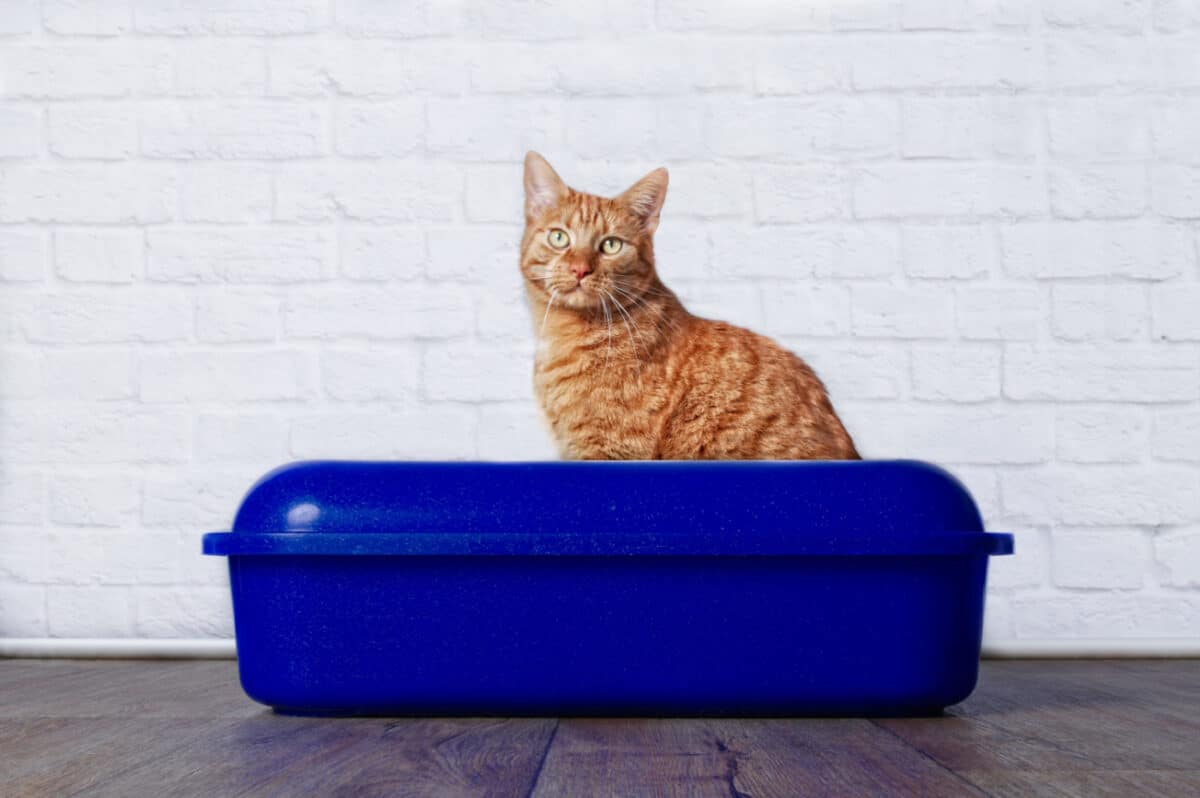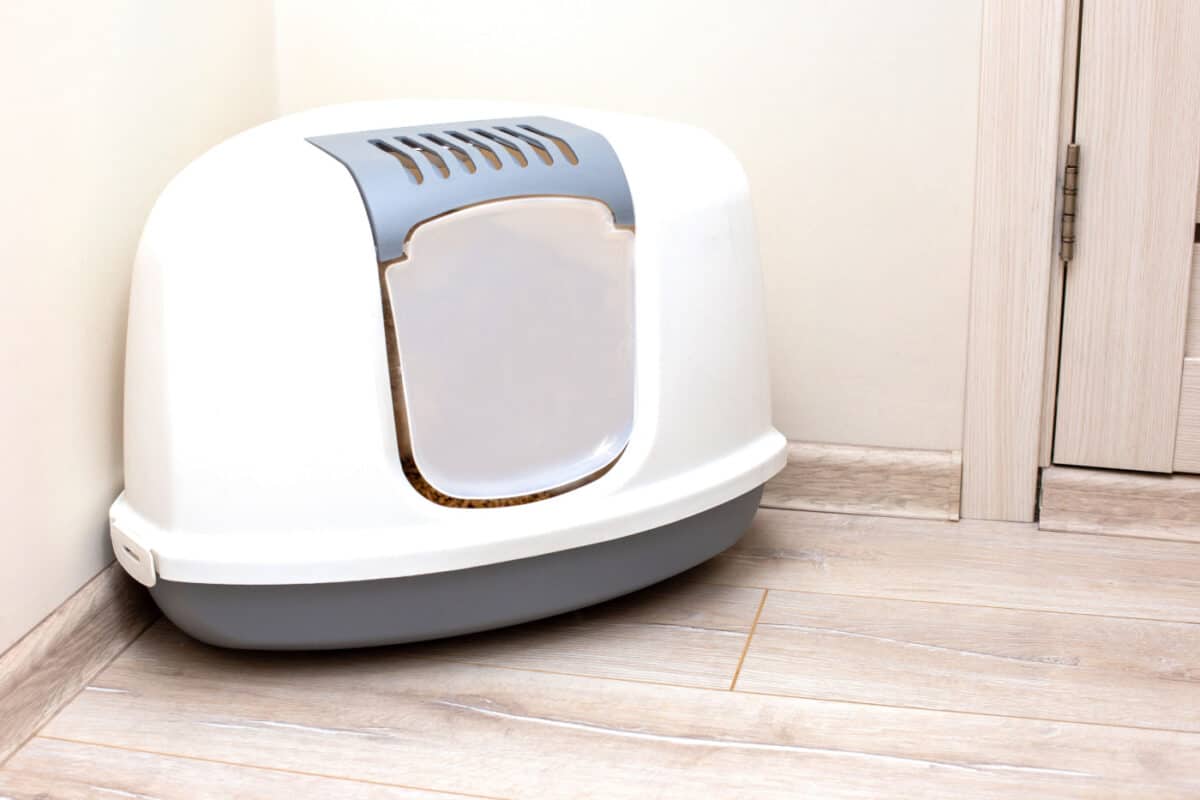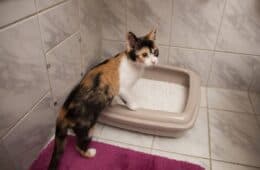If our cats can't access a clean litter box whenever they need it, we might end up with some unwanted surprises around the house. Yikes!
That's why it's so important to understand the ins and outs of litter box management. One crucial aspect of that is figuring out how many litter boxes you should have for your fur babies.

But guess what? There's no one-size-fits-all answer.
The number of litter boxes you need depends on various factors specific to your household.
Don't worry, though - we're here to guide you through all those considerations and help you make the best decision for your feline family members.
Let's dive into what you need to know to ensure your cats always have a clean and accessible litter box waiting for them!
Consider The Number of cats
The often-quoted formula tells you it's "the number of cats in your household + one." So, if you have only one cat, you need two boxes. For two cats, you should have three boxes, and so on.
That's a good number to start with.
Size of House
You're aiming at making the boxes accessible at all times. If your cat has to cross seven rooms to get to the box, he or she may not make it in time. This is especially true of kittens and elderly or sick cats. If you live in a large house, you may need three or even four litter boxes, even if you only have one cat.
Floors and Accessibility Issues
Older or sick cats, especially those with arthritis, may have trouble accessing some parts of your home. If they have to climb stairs or jump to a high shelf, they may opt to use another, more accessible spot.
Catering for Variety
Cats can have very distinctive preferences for certain types of litter boxes (open or closed) and different kinds of litter.
Let's say you have five cats, and three of them only go in clumping non-scented litter in an open box. You've placed six litter boxes around your house (five plus one, as per the formula).
But what if four of these boxes are covered boxes with recycled paper pellets that your three cats can't stand?
You're actually leaving three cats with the option to use only two litter boxes. If all three need to go at once, or if one of the boxes isn't cleaned in time, your cats may be left with no option other than the rug.
Cleaning Routine
Many cats will avoid a dirty litterbox. If you don't have the time to clean the litterbox at least on a daily basis, you should add even more boxes, to make sure each cat can find a clean litterbox.

Digging Deeper: Insights for Litter Box Success
While the factors discussed above provide a solid foundation for determining the number of litter boxes you should have, there are additional aspects to consider for a comprehensive understanding of this topic.
To help you make well-informed decisions for your cat's well-being, let's delve deeper into some key points that further highlight the importance of having the right number of litter boxes in your household.
Balancing Territory in Multi-Cat Households
Hey, we get it! Having multiple cats can be a blast, but it's essential to keep their litter box needs in mind.
Providing enough litter boxes for each of your furry friends reduces territorial disputes and aggressive behavior.
Remember, cats are territorial creatures, and they don't like sharing their elimination spaces. Give them their own space, and watch the harmony grow in your feline family.
Keep Calm and Provide Litter Boxes
Did you know that stress and anxiety can affect your cat's litter box habits? It's true!
By providing enough litter boxes, you create a more relaxed environment and reduce anxiety-related litterbox issues. Your cats will feel less cornered and threatened when they have multiple options for elimination.
SIGN UP FOR THECATSITE'S EMAIL UPDATES >
Tracking Your Cat's Health
Having enough litter boxes helps you keep an eye on your cat's health. Changes in elimination habits, like frequency or odor, can signal potential health issues.
By providing enough litter boxes, you can monitor each cat closely and address any concerns before they become serious problems.
Embracing Your Cat's Unique Preferences
Every cat is an individual, with their own likes and dislikes when it comes to litter boxes. By understanding and catering to their preferences, you can ensure consistent litter box use and fewer accidents.
This might mean providing different types of litter boxes or various litter materials. Remember, a happy cat is more likely to use the litter box consistently!
Room-Specific Litter Boxes: Convenience is Key
Want to make life even easier for your cats? Place litter boxes in rooms where they spend most of their time, like the bedroom or living room. This way, your cats won't have to travel far to find a litter box when nature calls.

It's especially helpful for kittens, elderly cats, or those with mobility issues who might struggle with long distances. Happy cat, clean house!
So, How Many Litter Boxes Should I Have?
As we said, it depends.
At a minimum, the number should be the number of your cats plus one. If you can space them around the house, make sure they're all accessible to all cats, get the right type of box and litter, and make sure they're all kept clean, you should be good to go!
Otherwise, consider adding more boxes, to make sure each and every cat can always find a clean accessible litter box that they can use.
SIGN UP FOR THECATSITE'S EMAIL UPDATES >
Still need more information? Check out this full guide to all of our articles:
The Litterbox: What Every Cat Owner Needs To Know
Comments? Leave them using the form below. Questions? Please use the cat forums for those!
Note: We may get commissions for purchases made through links on this page.




4 comments on “How Many Litterboxes Should You Have?”